Patchouli is a unique and polarizing fragrance that has a special place in the hearts of many. Its distinct earthy, woody, and musky scent can instantly transport you to a different time and place. But just what is patchouli?
In this blog post, we’ll delve into the fascinating world of patchouli, exploring its origins, uses, and why it’s loved by some and loathed by others. Whether you’re a patchouli enthusiast or curious about this enigmatic scent, join us as we uncover the secrets of what makes patchouli so captivating.
Just a little FYI – patchouli is one of my personal favorite scents, but I get that it’s not for everyone.
What does Patchouli smell like?
This is one of the questions that we get asked a lot.
This essential oil is heavy and strong, qualities that make it wonderful for perfumes as well as for soap. It is an essential component in any perfumer’s array of scents. It also provides an excellent grounding note in many blends as well as acting as a fixative of the scent.
Today I consider it one of those “love it or hate it” scents as people usually have a strong reaction to it one way or the other. I personally love the scent of patchouli, but I know it’s not everyone’s cup of tea. Nevertheless patchouli soap is one of our best selling products.
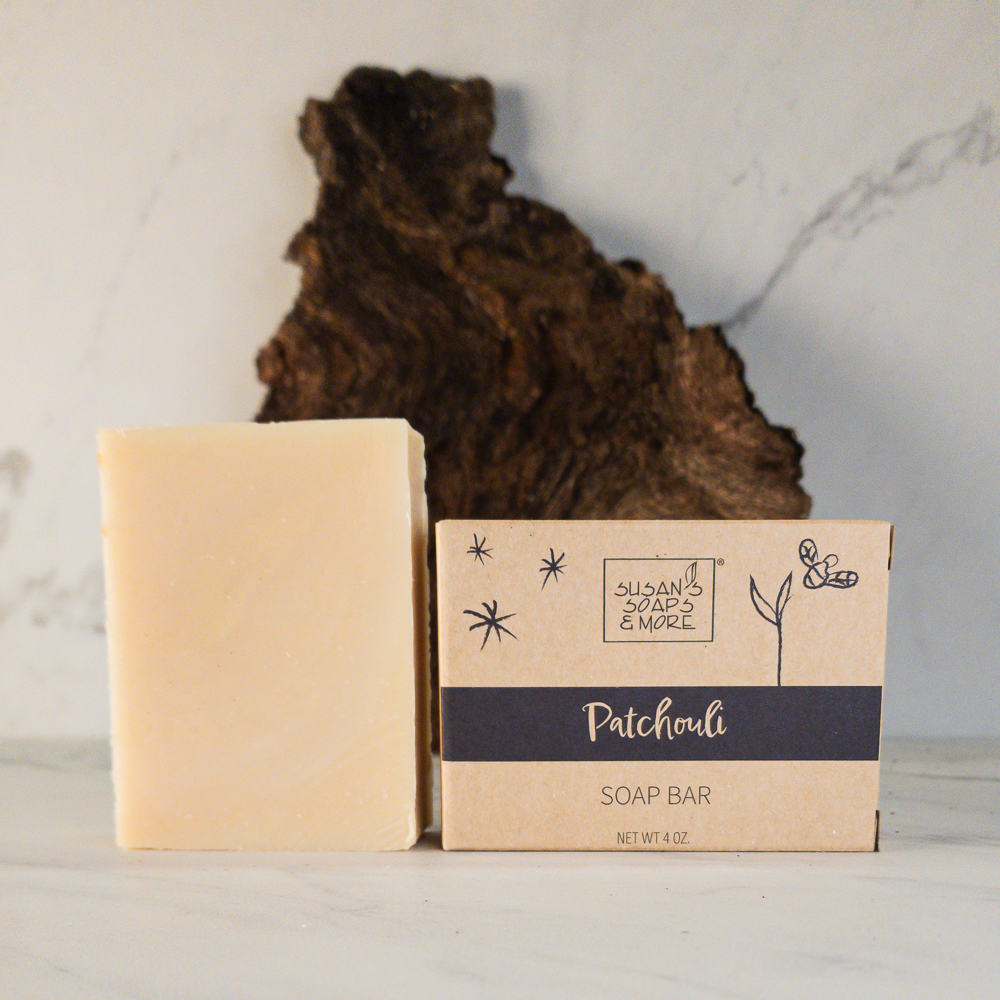
We also make a Patchouli Lotion Bar that is great for dry skin. Note: If you aren’t seeing Lotion Bars listed on our site, it is because the temps are too to ship them at this time.
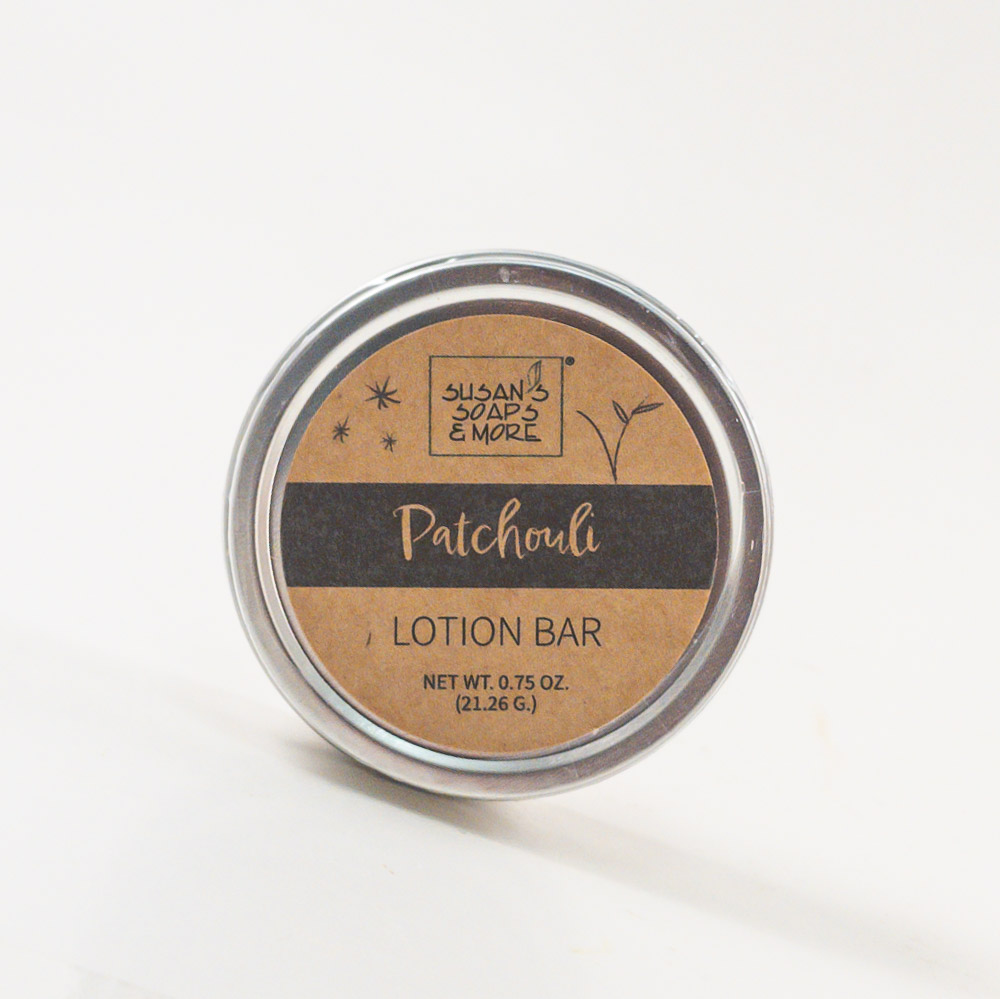
The two products listed above are the only ones scented with the single note of patchouli oil, However, we do make a number of products that use patchouli essential oil as part of a scent blend. For example, it is in all of our Lavender Sage scented products as well as Walk in the Woods soap. If you are looking for a single-note scent we have our bar soap as well as a lotion bar.
What is Patchouli?
Patchouli (Pogostemon cablin) is actually classified as a perennial, bushy herb that is from the mint family. It has erect stems, grows approximately 2 – 3 feet high, and produces small pale white-pink flowers.
This oil has a deep, earthy fragrance that became extremely popular in the 1960s and 1970s with the “hippie generation”. Perhaps part of its popularity during this time was due to its reputed ability to combat frigidity.
Where does it come from?
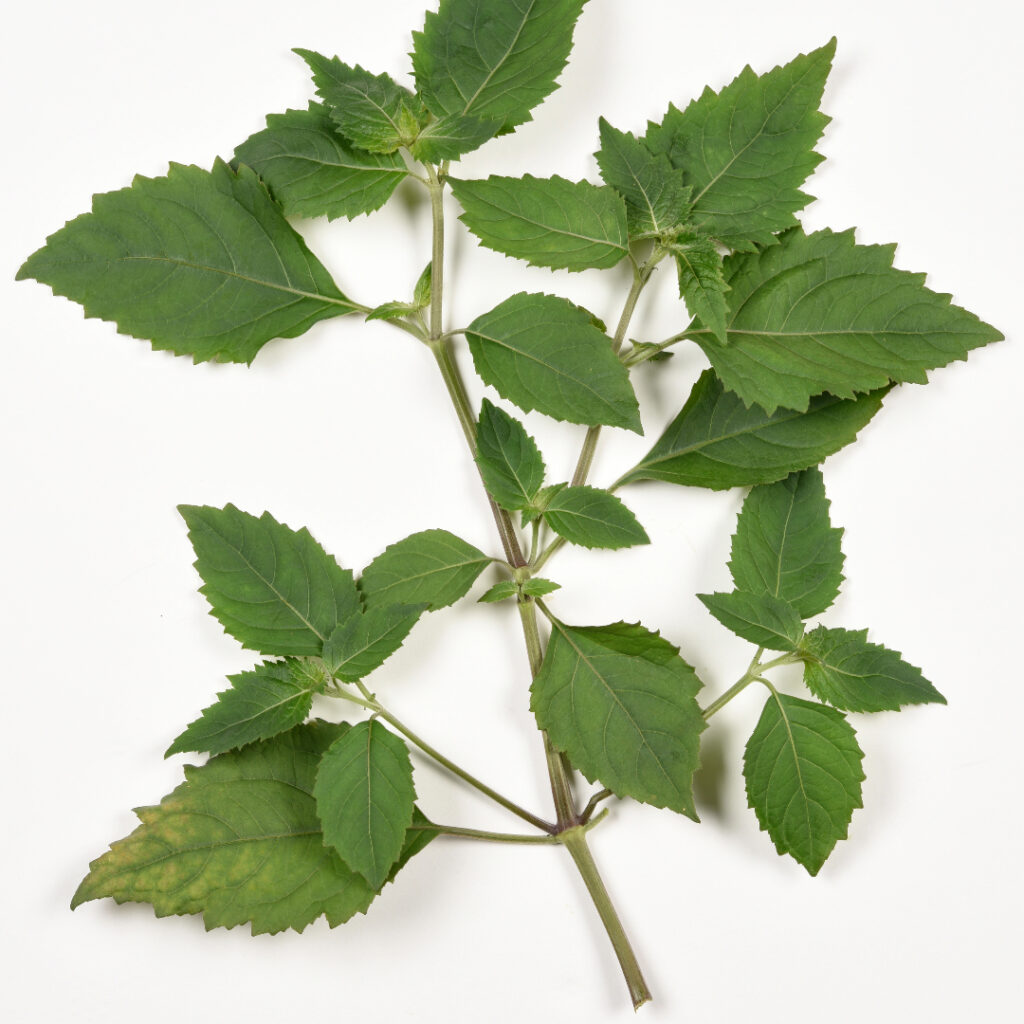
The plant is native to the tropical regions of Asia, particularly Indonesia and the Philippines. It is now extensively cultivated in those areas as well as the Caribbean, India, China, and Malaysia. During the 18th and 19th centuries silk from China and shawls from India were packed with dried patchouli leaves to keep the moths and insects out. In fact, for a time that was how many Europeans judged the authenticity of Indian shawls by the scent of patchouli. Historians have thought that these associations with exotic eastern goods are why patchouli was considered by Europeans of that era to be a luxurious scent. It is said that the linen chests of Queen Victoria contained dried leaves of the plant to protect them from infestations.
The word patchouli derives from the Tamil patchai (Tamil: பச்சை) (green), ellai (Tamil: இலை) (leaf). In Assamese it is known as xukloti.
Patchouli is cultivated for its oils which are produced by steam distillation from either the fresh or dried leaves. There is actually a difference of opinion on whether fresh or dried leaves produce the better oil.
What are the benefits of patchouli?
Regardless of how you feel about the scent of this essential oil, it is considered to be useful in many respects.
- Useful as an insect repellent
- It may be used as a conditioner for dreadlocks
- In Japan and Malaysia, it is used as an antidote for venomous snakebites
- It is an important ingredient in incense and along with that is considered calming
Robert Tisserand listed patchouli as one of his 6 skin soothing oils in his presentation at the HSMG Soap Conference in Denver I attended. As such it is considered beneficial for eczema, dermatitis, wrinkles, and cracked and dry skin.
Conclusion
Patchouli is one of my personal favorites of the essential oils I work with for several reasons: it is soothing to the skin and to the emotions, it blends well with a wide number of other essential oils and I personally love the way it smells. I hope I have answered the question of “What is Patchouli?” as well as “What does it smell like?” and “What are the benefits of patchouli?”
Patchouli is a versatile herb with an unmistakable earthy scent. Its oil is highly prized in the world of perfumery and aromatherapy. While its fragrance may not be everyone’s cup of tea, the benefits of patchouli are truly remarkable. From nourishing dry skin to providing stress relief, this herb has a lot to offer. If you’re ready to experience the wonders of patchouli for yourself, why not consider purchasing a patchouli-infused product or trying out an aromatherapy service? Your senses and well-being will thank you.
As a quick recap, it is a herb that is cultivated for its wonderful oil which is valued in perfumery and aromatherapy.
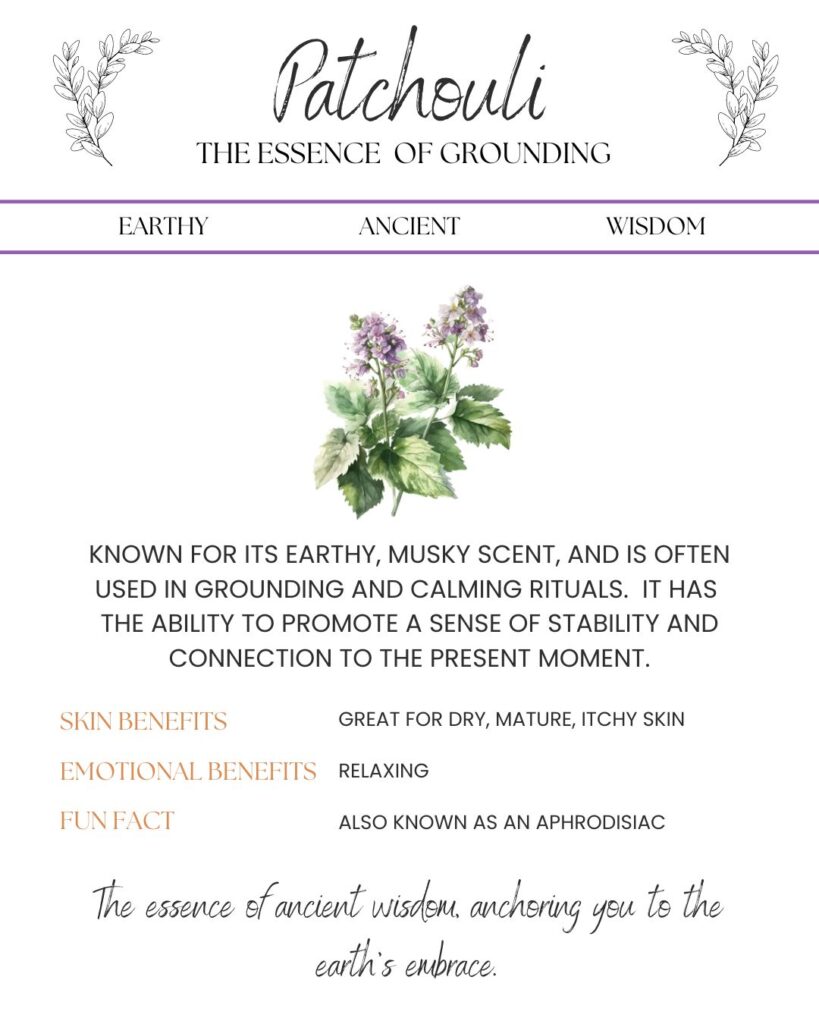
That is Patchouli and if you haven’t tried it I urge you to take a closer sniff.
Products with Patchouli
FAQs
What is Patchouli?
Patchouli (Pogostemon cablin) is actually classified as a perennial, bushy herb that is from the mint family. It has erect stems, grows approximately 2 – 3 feet high, and produces small pale white-pink flowers. Patchouli is native to the tropical regions of Asia, particularly Indonesia and the Philippines. It is now extensively cultivated in those areas as well as the Caribbean, India, China, and Malaysia.
What does Patchouli smell like?
Patchouli has a deep, earthy fragrance that became extremely popular in the 1960s and 1970s with the “hippie generation”. Patchouli essential oil is heavy and strong, qualities that make it wonderful for perfumes as well as for soap.
What are the benefits of Patchouli essential oil?
It is useful in repelling insects, helpful in calming and reducing stress. Patchouli is also good for skin care. Robert Tisserand lists it as one of his 6 soothing skin care oils. As such it is considered beneficial for skin that is irritated, dry or aging.
References:

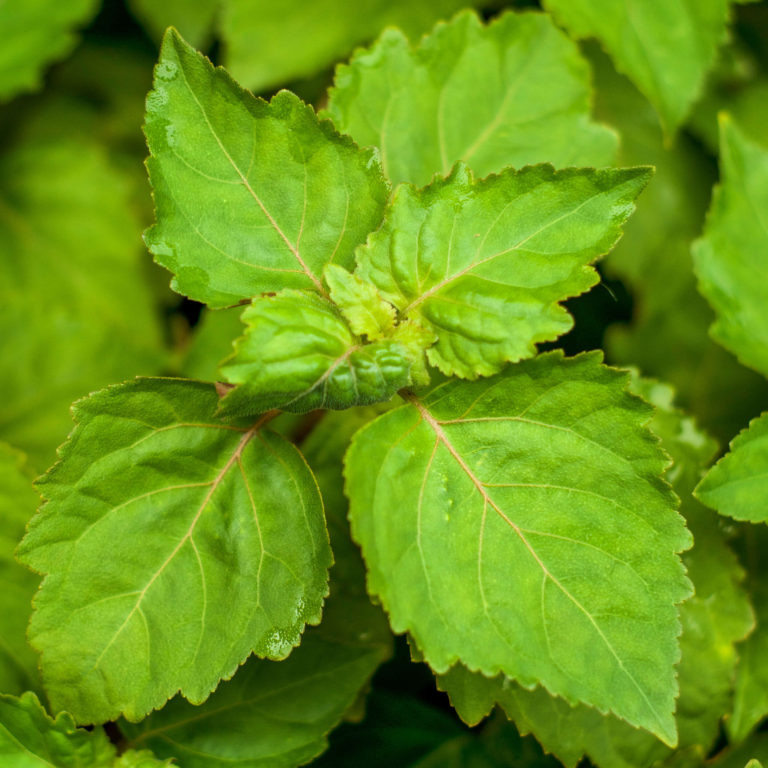
I’ve been wearing patchouli oil since college. I’m now 70. I have been stopped several times over the years in stores, asking what scent I’m wearing. I think it mixes with your natural pheromones, too.
I always wounder what it was and what it was good for,thanks for the information. Email address is [email protected]
Hello Susan, thank you for this article. I have ever loved patchouli smell and now I have some other reasons to keep loving this herb. Can you extract its essential oil by yourself?
Great clarifying article. I didn’t know it could be used both to repell insects and for treating snake bites. And it is excellent in soap. Talk about versatility!
I am glad you enjoyed the article. I consider Patchouli indispensable, but of course not everybody likes it as much as I do.
Thanks for the tip about patchouli and moths! Now I’m wondering if I should get some dried patchouli leaves to protect my wool yarn stash. 🙂